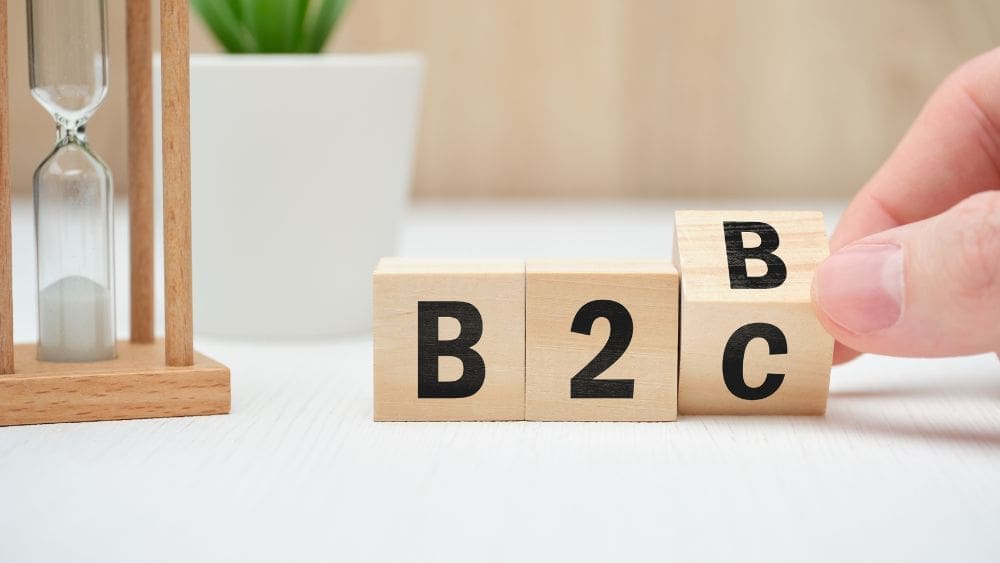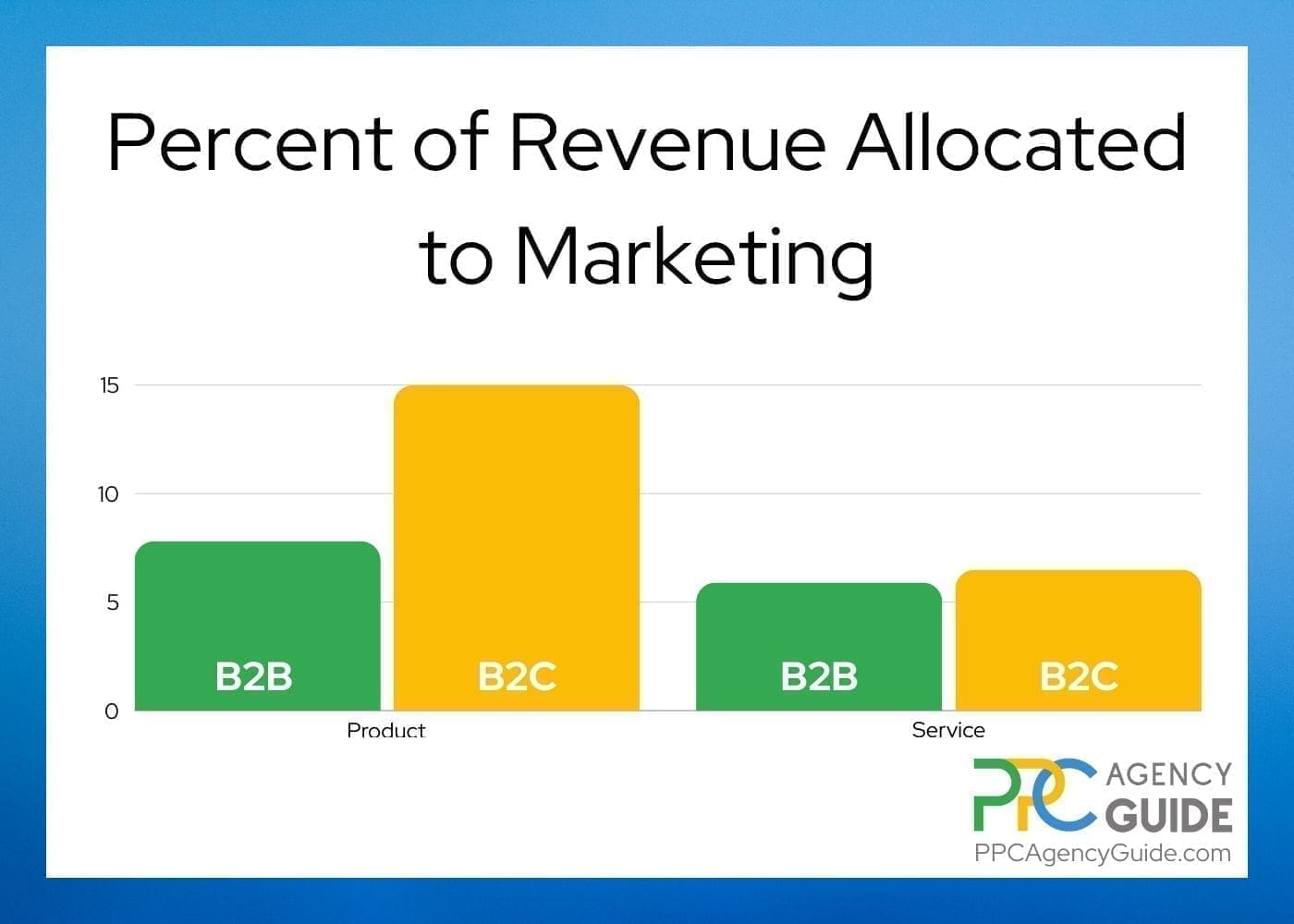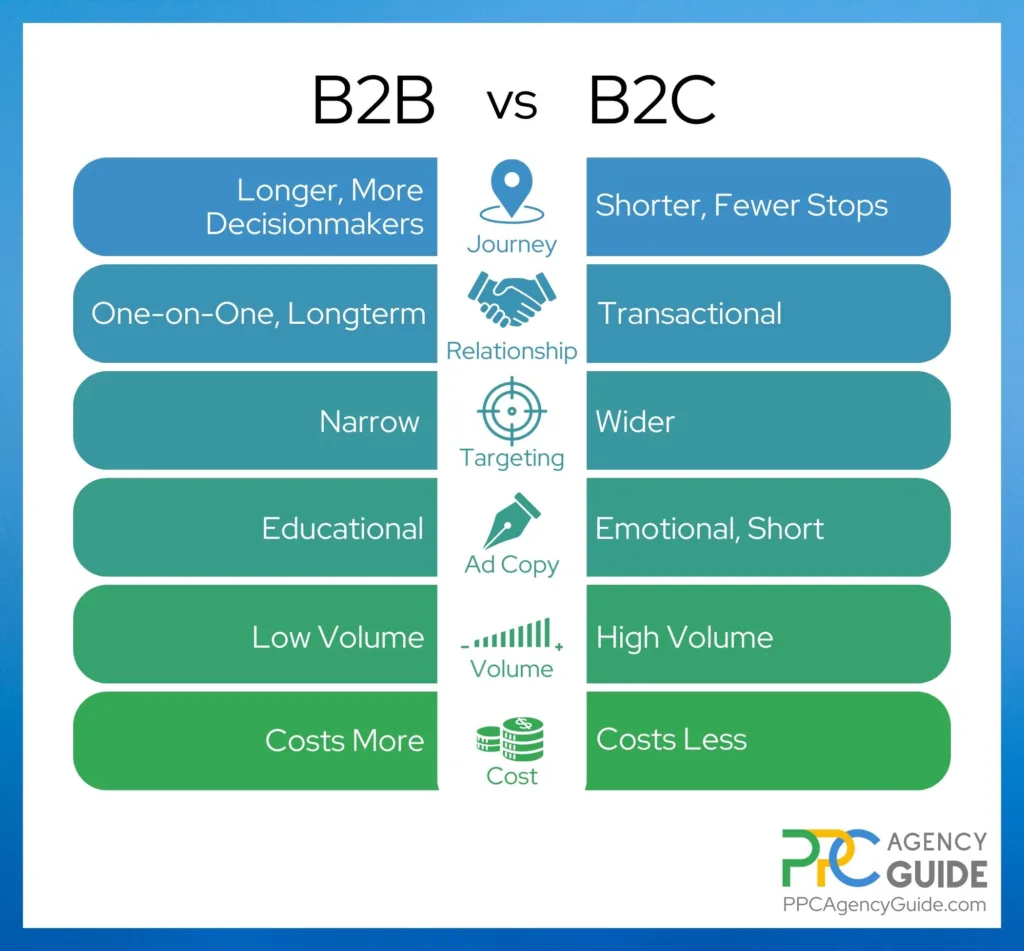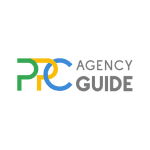
Pay-per-click (PPC) is a great place to start if you’re trying to accelerate business growth. It’s versatile and effective. Brands that leverage it get double their investment back, on average, TechJury reports. But, there’s one thing you won’t hear in most PPC help guides: B2B and B2C different strategies to be effective.
B2B vs. B2C in a Nutshell
B2B and B2C companies are different because of the people they serve, so their approach must be different, too.
- Business-to-business (B2B): The company has other businesses as customers.
- Business-to-consumer (B2C): The company’s customers are individual people.
B2B vs. B2C Marketing
We start seeing differences in how B2B and B2C companies approach marketing based on the budgets they set. B2C companies invest more, with product-based businesses allocating more than 15 percent of their revenue for marketing and their B2B counterparts investing around eight percent, HubSpot reports. However, there’s less than a one-percent gap in the service industry.

B2B vs. B2C Digital Marketing
Even though B2B and B2C brands leverage many of the same tools and techniques in digital marketing—such as PPC, SEO, social media, and email—the difference in customer base affects how these tools are used to reach customers effectively. For example, the travel, tourism, and hospitality industries often require tailored PPC strategies to effectively target their unique customer demographics.
Tailoring Your PPC Strategy to the Decision-Making Process in B2B vs. B2C
Tailoring your PPC strategy to the decision-making process in B2B and B2C is crucial for achieving high ROI. B2B marketers should focus on the longer sales cycle and relationship building, which are key differences between B2B and B2C marketing. In a B2B business, the decision-making process involves multiple stakeholders, requiring detailed information and a nurturing approach. Conversely, B2C marketers target individual consumers with a shorter sales cycle, often leveraging emotional appeals and an immediate call-to-action. Platforms like LinkedIn are ideal for B2B advertising, allowing precise targeting of professionals and decision-makers. B2B PPC campaigns should incorporate content marketing, such as whitepapers and case studies, to guide potential clients through the conversion funnel. Google Ads can be used to reach a broader audience, but tailoring ad copy to highlight the product or service’s benefits for businesses is essential. Email marketing campaigns can also support lead generation efforts by providing valuable insights and updates to keep potential clients engaged. By understanding and addressing the specific needs of B2B and B2C customers, marketers can optimize their PPC strategies to target their audience and drive conversions effectively
Effective Audience Targeting: B2B vs. B2C Approaches
Effective audience targeting is essential in differentiating B2B and B2C marketing strategies. B2B marketers need to focus on identifying key decision-makers within potential client companies, using platforms like LinkedIn for precise targeting. B2B businesses usually target a niche audience, requiring detailed market research to understand their needs and preferences. In contrast, B2C marketers target a broader audience, often segmenting by demographics, interests, and behaviors on social media platforms. Google Ads is a versatile tool that allows B2B and B2C marketers to reach their desired audience, but the approach differs. B2B PPC campaigns should focus on long-tail keywords and specific industry terms, while B2C campaigns can benefit from broader, more generic keywords to attract a larger audience. Analytics play a crucial role in both strategies, helping marketers understand the effectiveness of their campaigns and adjust their targeting accordingly. By leveraging customer relationship management (CRM) systems and analytics, B2B marketers can refine their targeting to improve lead quality and conversion rates. Effective audience targeting ensures that marketing efforts are focused on the right prospects, enhancing the efficiency of ad campaigns and boosting overall ROI.
One of the most effective platforms for B2B lead generation is LinkedIn PPC advertising. It allows brands to target professionals based on role, seniority, industry, and company size, ensuring ads reach true decision-makers. This precision is especially valuable in B2B campaigns, where lead quality matters more than volume and where long sales cycles demand more strategic segmentation than typical B2C efforts.
5 Ways B2B PPC is Different Than B2C PPC
Most things that set B2B PPC apart from B2C PPC are universal, so you can apply what you learn to other marketing initiatives.
1. The Customer Journeys Are Distinct
When you’re managing PPC for a B2C brand, you’re usually trying to reach the primary decision-maker or someone who shares decision-making power, such as a spouse. That means you’re only responsible for carrying one person through the customer journey.
When you’re managing PPC for a B2B brand, you may be connecting with someone who has decision-making power, but it’s often shared by one or more people. That means they’ll almost certainly pause at each stage of the customer journey to get feedback from others in the decision-making process.
Both parties will probably perform some type of research. However, the B2C buyer is more likely to do some quick comparison shopping and read reviews, then make a purchase. B2B buyers are more likely to do a deep dive and report their findings to someone else.
Because of these differences, B2C PPC can be geared toward a quick sale. B2B PPC, on the other hand, must be supplemented with nurturing campaigns.
2. One-on-One Relationships Matter More with B2B PPC
B2B buyers are in it for the long haul. They know that their decision will impact the company as a whole and its employees. A decision won’t be made lightly when implementing something new, and whichever option they select will likely be with the company for many years, if not the brand’s lifetime.
Because of this, they need more educational materials as they move through the process. Whitepapers, comparison guides, and other assets can all become part of your PPC strategy as you address people toward the middle of the journey and in retargeting campaigns.
Instead of being ready to buy right away and possibly going through the entire sales process without ever talking to a person, as you’ll see with many B2C PPC campaigns, a B2B buyer needs a relationship. They may engage with a brand and sales team for weeks or months before moving forward.
This means B2B PPC ads should be geared more towards carrying someone to the next stage and building a relationship. Demos, consultations, and quotes are powerful assets in the B2B marketer’s toolkit. It also means that your marketing technology must be on-point to ensure you can track prospects over time and provide the sales team with insights. For instance, you’ll need a CRM to track all your connections at a company and be able to link all your contacts together.
3. B2B PPC Advertising Requires Different Audience Targeting
Both B2B and B2C brands should leverage personas to ensure they’re connecting with their audience. However, B2C brands often have a vast pool of potential matches, while B2B brands have just a few.
B2C companies can typically let their ads run constantly when refining PPC campaigns. People operate on different schedules, so there may be no difference in the conversion rate between a visitor who sees your ad on a PC in the middle of the day and one who sees your ad from their mobile device in the evening.
B2B PPC isn’t the same. Although there may be exceptions, your audience is far more likely to engage with your brand during regular business hours from a desktop PC. Because of this, many B2B brands boost their desktop budgets and shut off or reduce spending outside of regular business hours.
4. B2C PPC Ad Copy Can Be More Emotional and Casual
B2B and B2C buyers come to you from different places and have different goals, so your ad copy needs to reflect that. With B2C, you can often evoke more emotion with your ad copy. It’s generally better to speak more plainly and keep things short.
With B2B markets, your buyer expects you to be the master of your domain. Including industry jargon is sometimes advantageous because it shows you understand and speak their language. You may also want to develop longer landing pages to break down their barriers and provide them with more information to share with other decision-makers.
5. B2B PPC Volume is Lower, and Costs Are Higher
Most B2C companies cater to a broad audience, so you may have hundreds of thousands, if not millions, of prospective customers to reach. B2B companies usually try to reach a particular audience or persona. Your potential audience may shrink even more if you only serve a handful of industries. Because of this, you and your competitors are fighting to be seen by the same small group of people every time. This drives up the cost.
Leveraging Content Marketing to Boost B2B and B2C PPC Success
Content marketing is a powerful tool for enhancing PPC success in both B2B and B2C campaigns. For B2B marketers, creating in-depth content such as whitepapers, case studies, and webinars can attract and educate potential clients throughout the longer B2B sales cycle. This content can be promoted through PPC campaigns on platforms like LinkedIn and Google Ads, targeting specific industries and decision-makers. B2C marketers, on the other hand, should focus on creating engaging and shareable content that appeals to a broad audience. Blog posts, videos, and social media content can drive traffic and conversions, especially when combined with targeted PPC ads on platforms like Facebook and Instagram. Both B2B and B2C businesses can benefit from integrating content marketing with their PPC efforts to improve brand awareness and customer engagement. By using analytics to track content performance, marketers can refine their strategies and focus on the types of content that drive the best results. Leveraging content marketing alongside PPC campaigns ensures that marketing efforts are cohesive and effective, ultimately boosting lead generation and enhancing ROI.
Get Help Improving Your B2B PPC or B2C PPC
The five points covered here only scratch the surface when it comes to B2B vs B2C PPC. If you’re struggling to get results from your campaigns or think there’s room for improvement but aren’t sure where to start, an experienced PPC agency can help ensure you connect with prospective customers meaningfully and are primed for success. Request a complimentary consultation to explore your options.



















